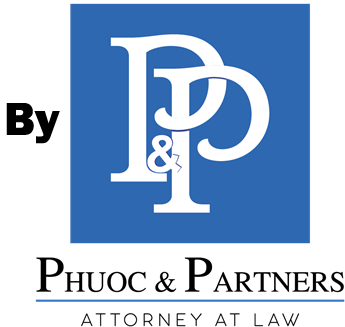
Debt Recovery Dispute Resolution
Debt recovery is the process by which a creditor recovers funds lent, or payments for goods sold or services rendered, that have not been fully and punctually paid. Debt recovery is a complex and sensitive issue, as it may impact the relationship between the parties if not handled effectively. In the current challenging economic climate, debt recovery disputes are becoming increasingly frequent, due to parties failing to reach a common understanding on payment methods. Through this article, we will provide an overview of Debt Recovery Dispute Resolution methods and delve into two specific methods: court mediation and arbitration, to resolve debt recovery disputes swiftly and effectively.
Methods for Debt Recovery Dispute Resolution
Debt Recovery Dispute Resolution can be carried out through various methods, depending on specific circumstances and agreements between the parties. Below are some popular methods for Debt Recovery Dispute Resolution.
Negotiation:
When overdue debt arises, the parties involved can meet and negotiate directly with each other to find a satisfactory solution for both sides without the need for third-party intervention. Direct meetings and exchanges will help enterprise understand the debtor’s financial situation, thereby developing a reasonable repayment plan balancing the interests of both parties.
When the parties have reached an agreement regarding the debt and the method of repayment, it is crucial to record the entire content of the agreement in minutes. This minute should specify the terms of the debt, the timeline, and the method of payment. It is essential to ensure that all agreements are in writing and bear the signatures of the parties involved, to serve as legal evidence.
Negotiation is often employed by enterprises because it is straightforward, cost-effective, and not constrained by complex legal procedures. However, due to its non-binding nature, this method is only effective if the parties involved act in good faith and with honesty.

Related Articles: DEBT COLLECTION STRATEGY
Mediation
Mediation via third-party intermediary is a method for debt recovery disputes resolution parties often resort to when solutions harmonising the interests of the parties are unreachable.
Commercial mediation is a dispute resolution method agreed upon by the parties, with a commercial mediator acting as an intermediary to assist in resolving the dispute. Commercial mediators are individuals who possess legal expertise and a thorough understanding of business and commercial practices. As a result, commercial mediators help the parties comprehend the nature of the dispute and find an effective solution for debt recovery disputes.
The advantage of this method is its confidentiality, helping the disputing parties maintain their business relationship. However, since it is mediation arranged by the parties themselves, the agreements and commitments regarding debt resolution are not binding. Therefore, one party’s breach of obligations is entirely possible, rendering the entire mediation process meaningless. To make the mediation result binding, the parties must request that the competent Court recognise it according to civil procedure.
Debt Recovery Disputes Resolution at Court or Arbitration:
Court
Contrary to mediation outside of the Court, the method for debt recovery disputes resolution via mediation at Court is a part of the trial preparation proceeding under civil litigation procedure:
- To resolve the dispute using this method, one of the disputing parties must submit a petition requesting the Court to resolve the debt-related dispute, and the petition must be accepted and processed by the Court.
- At the meeting to review the submission, access, and disclosure of evidence and mediation during the trial preparation, the litigants will negotiate to resolve issues in the case, such as the outstanding debt and the payment method. If the parties reach an agreement to resolve the entire debt, the judge will record a minute of successful mediation. If no litigant changes their opinion within seven days from the date the minutes are issued, the judge will issue a decision recognising the agreement of the parties.
Comparing to the methods of negotiation and mediation outside the Court, the mediation process at Court has the following advantages, disadvantages:
- Advantages: The decision recognising the agreement of the parties will have immediate legal effect, cannot be appealed according to appellate procedures, and can be enforced immediately. With the Court’s support as an intermediary, the parties can quickly reach a common solution for debt recovery dispute resolution.
- Disadvantages: In cases where the parties cannot reach an agreement on all contents of the dispute, the dispute will continue to be resolved until the Court issues a decision/judgment, resulting in prolonged dispute resolution time between the parties. Due to the principle of public trials, the entire content of the dispute and the information of the parties will not be kept confidential. This may impact the reputation of the enterprises involved.

Related Articles: Popular debt collection services in Vietnam
Arbitration
Unlike submitting a petition requesting the Court to resolve a debt-related dispute, to proceed with dispute resolution at an Arbitration institution, the parties must first have an arbitration agreement in one of the following forms:
- Terms specifying the institution for dispute resolution is Arbitration;
- Or the parties can sign a separate, independent agreement to choose the Arbitration institution to be the institution for debt- related dispute resolution.
One of the advantages of resolving disputes through arbitration is confidentiality. Since arbitration proceedings are not conducted publicly (unless the parties agree otherwise), entities without rights or obligations related to the dispute are not permitted to attend. This helps to ensure the reputation of the disputing parties is maintained.
An arbitration award is final and enforceable immediately without appeal. This principle facilitates debt recovery disputes resolution swiftly, helps enhancing enterprises’ ability to recover debts and reducing potential losses. However, this advantage also means that disputing parties may feel uneasy, as an incorrect arbitration award remains enforceable without the opportunity for correction, unlike Court’ judgments or decisions. Although parties have the right to request that the competent Court to annul an arbitration award, the Court will not re-examine the content of the dispute but will only review the legality of the arbitration proceedings and procedures.
One of the limitations that may cause hesitation among many enterprises regarding arbitration for debt recovery disputes resolution is the relatively high cost compared to Court fees. Additionally, if the claimant wins the case, the Court will refund the initial court fees paid. Although the refund process may take time, it is guaranteed. In contrast, the allocation of arbitration costs depends on the Arbitration panel, and recovering arbitration costs relies on the financial capability of the losing party. This can place a financial burden on small and medium-sized enterprises.
Each method of Debt Recovery Dispute Resolution has its own advantages, disadvantages, and characteristics. The choice of method will depend on the nature of the debt, the relationship with the debtor, the debtor’s willingness to resolve the debt, and the financial situation of each enterprise.
Above is a detailed analysis and explanation on the methods for Debt Recovery Disputes Resolution that Phuoc and Partners shared with readers. If you encounter any difficulties related to the legal field, please contact us. Phuoc and Partners is a law firm established in Vietnam and currently has nearly 100 members working in three offices in Ho Chi Minh City, Hanoi and Da Nang. Phuoc and Partners also considered as one of the leading law firms with leading specialised legal staff in Vietnam practice areas are rated top in the legal market such as Labour and Employment, Taxation, Mergers and Acquisitions, Litigation. We are confident to be one of the Law Firms providing the best legal services to our clients.

